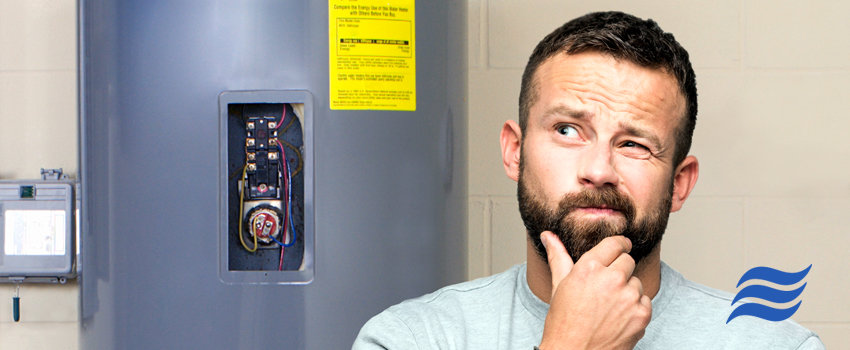
What Temperature Should a Hot Water Heater Be Set At?
How hot should hot water be? There isn’t really a universal temperature for ‘hot water’ so how do you know what temperature is appropriate for your hot water heater?
There’s a suggested temperature for hot water heaters, but a lot of other factors can influence what temperature is appropriate for your heater.
Depending on your own personal situation and living space, your heater might be set to a higher or lower temperature than the recommended.
Let’s take a look into this and figure out what’s best for your lifestyle.
120ºF is the average temperature for hot water heaters in most homes.
There isn’t a perfect temperature for every hot water heater. It varies from house to house. But the average for most homes is 120 degrees Fahrenheit. Your heater’s ideal temperature really depends on the needs of your household.
For example, if you have small children in your home or an elderly person, you might not want to have the temperature up too high. If you have somebody who is ill or immunocompromised, it also affects what temperature your heater should be at.
If you don’t have small children or anybody with poor health living in your home, then the ideal temperature for you will probably be 120ºF.
The U.S. Department of Energy, for maintenance and savings purposes, recommends that you set your hot water heater to 120 degrees. Most heaters (according to the U.S. Department of Energy) come preset at 140ºF, but this temperature is unnecessary and will only waste your money in the long run.
By setting your hot water heater to 120ºF, you’ll be able to enjoy hot water for cleaning and bathing, but there’ll also be a slower mineral buildup and less corrosion in your pipework.
If your water heater is set to 120ºF, not only will you be saving money by having to pay for less maintenance due to less wear and tear, but you’ll also save money on your energy bills.
Reasons to set your water heater to 140ºF
If you or a member of your household has a suppressed immune system or some form of chronic respiratory disease, it might be a good idea to keep your hot water tank at 140ºF.
You won’t save on maintenance and energy costs, but it will ensure that all bacteria on your plates, glasses, and cutlery are thoroughly cleaned off in your dishwasher. If your dishwasher doesn’t have a booster heater, it will need to be heated to 140ºF for optimum cleaning.
However, having the temperature up to 140ºF does increase the risk of being scalded by hot water. You can easily fix this by adding a temperature-regulating device to any taps used to wash or bathe.
How to check (and adjust) the temperature of your hot water heater
1. Check the temperature
To check the hot water heater's temperature in your home, you should be able to just look at the dial. However, hot water heater dials can often be incorrect, so to get a more accurate reading, we suggest taking the water's temperature by hand (with a thermometer).
Go to the tap the furthest away from the heater, turn the hot water up all the way, let it run for a couple of seconds or so, and then take the temperature with a thermometer.
2. Mark the temperature
On the dial of your hot water heater, write down the temperature you took from the tap. Then, turn your thermostat down.
3. Measure again and adjust
Wait an hour or so and then recheck the temperature of your water. If it’s not the temperature you wanted, then adjust the thermostat and repeat until you’ve found your desired temperature.
4. Mark the perfect temperature
As soon as you’ve found the right temperature for your water heater, mark it on the thermostat in case you want to make any further changes in the future.
Leaving for the weekend?
If you're planning a couple of days away from home, then remember to turn your thermostat down to the lowest temperature (or turn the water heater off completely).
Lowering the thermostat will help you save on energy and maintenance costs. Thanks to the marks you made on your heater's dial, you'll know exactly where you need to turn it up to when you get back.
There you have the basics of what you need to know about setting and adjusting your hot water heater. Remember that if you have any concerns about your water temperature, you should always call a professional to help you out with any problems.
